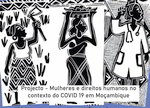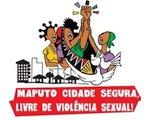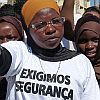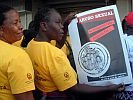Revision of the penal code
Punishment for sexually raped children and women
The law, which was intended to protect victims of rape, favors the rapist. If the rapist is convicted of the crime but marries the victim, the law authorizes that his sentence be suspended.
 The new version of the Penal Code was already pre-approved by Parliament in December 2013. Despite that Mozambican laws defend the equality of all people, there are still situations in which human rights are violated, especially the rights of children.
The new version of the Penal Code was already pre-approved by Parliament in December 2013. Despite that Mozambican laws defend the equality of all people, there are still situations in which human rights are violated, especially the rights of children.
Rape victims must be fully protected and supported by the State. The legal interest is to protect the physical integrity and dignity of the victims. However, Article 223 of the preliminary draft of the Penal Code presents standards that, if applied, could potentially cause more suffering for victims.
Final approval will take place during the next session of Parliament in March 2014. There is still time to change the standards that discriminate and violate human rights.
What does the Penal Code say?
ARTICLE 223 – Effects of marriage
This article says that in cases of rape and sexual violation of a child 12 years or younger, the accused can put an end to the inured party’s litigation and pre-trial detention if the accused marries his victim. The action would continue in court for a final judgment, but if there is a conviction, the penalty would be suspended since the aggressor is already married to the victim. After five years of marriage, without resulting in divorce or legal separation, the sentence would lapse.
What are the consequences?
Adult women have more authority to refuse to marry their attackers, even if there is pressure from the family to do so. But because it is in the interest of the families, children often have fewer choices and say in refusing a marriage. These girls are still forced to marry their attackers even after suffering the terror of being raped. How will their lives be? This is a nightmare for rape victims.
In Morocco the law is the same: it allows a rapist to avoid prosecution and a long jail sentence by marrying the victim if she is a minor. For this reason, in 2012, 16 year old Amina Filali, who was raped, beaten and forced to marry her rapist, committed suicide. That was the only way she saw to escape from being trapped in her nighmare. More than 800,000 Morrocans have raised their voice in protest of this tragedy and have demanded for the law to be reviewed.
Who benefits?
The rapists and the families are those who benefit. The idea exists that a woman who is raped is a disgrace and an embarrassment to the family. The legal right that this standard intends to defend is not the victim, but instead to honor the family. No matter if this destroys the lives of victims who have suffered so much violence.
Proposal:
Totally eliminate this article of the Penal Code.
by WLSA Mozambique
 Ana Loforte, anthropologist
Ana Loforte, anthropologist
Rape and child rape are among the most despicable acts that can be committed against another human being. Worldwide, the punishment or sanction against this type of crime is very severe and the main objective of the law is to eliminate or discourage rape from taking place.
It is hard to see how, in the 21st century, the Mozambican Penal Code, excuses the perpetrator of his culpability and punishes the victim.
 Conceição Osório, sociologist
Conceição Osório, sociologist
This article of the Penal Code is an insult to humanity: the criminal, because sexual violation is infact a crime, is set free. Even further, through “marriage” the rapist becomes a citizen freed from any punishment. The victim is no longer a victim and could even become labled as “guilty” if she refuses to accept to marry the person who has caused them so much harm.
Is this what the law recommends: if you want to marry someone who rejects you, rape and then marry her. Some may say that the victim can refuse the marriage, but is this true? Is it this possible when we live in a society where children and women are not entitled to choose who they marry? In this possible in a world where 13 year old girls are forced to get “married”? And if she refuses to marry, the victim is left with two options: kill the rapist or commit suicide.







 Information in English
Information in English



















